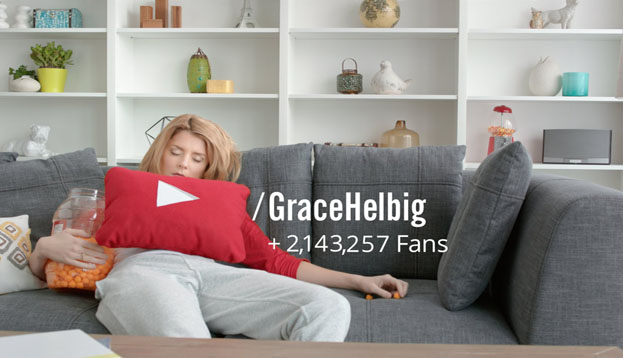Considering the popularity of many YouTube stars – like PewDiePie, who made millions off his many videos last year – it shouldn’t be a surprise that Facebook, with its growing video business, is trying to nab many of these talents for its own site. However, YouTube isn’t ready to go down without a fight.
Per a report from the Wall Street Journal, Google’s video site recently launched a new division that focuses on top creators, in an attempt to help them generate more revenue and prevent them from leaving to try out a competitor, such as Facebook’s video service. This service will help users with creating new material, address complaints (rather quickly) and more. The best videos from this program would go towards a “Google Preferred” division, which provides the top five percent of YouTube content to advertisers for buying upfront at higher rates.
“I want to be running a platform that they can stay on, that they can grow up on and extend their work even further,” said YouTube CEO Susan Wojcicki, speaking at VidCon this past weekend.
The competition is certainly heating up, if this weekend’s video-oriented convention was any indication. Over 10 online video providers were present at the event, and a variety of superstars from said videos were on hand, who have no doubt garnered interest with these competitors.
“Everyone is interested in other platforms to diversify or to develop new audiences,” said Hank Green, host of various YouTube programs, including Crash Course.
These users have been talking to other services, although YouTube still seems to have a level of preference. For instance, Anna Akana, a popular YouTube host of comedy and advice sketches that interest more than 1.3 million subscribers, got in touch with a member of YouTube’s top creator team back in June, addressing concerns with upcoming programming. Before that time, YouTube hadn’t really been good about keeping in touch with creators, but this new program looks to change that – in order to keep them around.
With a video market that’s expected to grow 34 percent a year to more than $10 billion by 2016 (per Biz Journals), there’s no question that these superstars are a hot commodity to the likes of Facebook and Google. Now the only question is if the YouTube program will be effective over time – or if Facebook will have the strength to create a league of “top creators” of its own…

